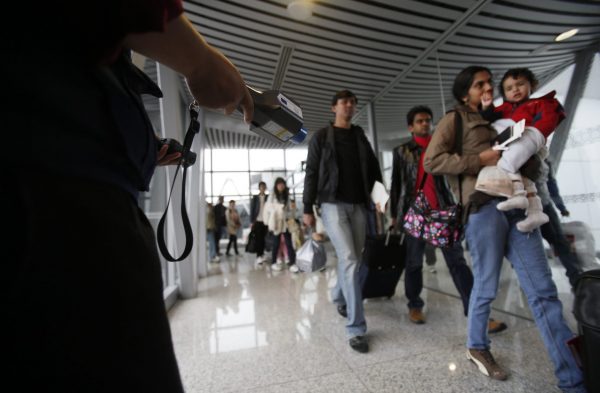There are concerns that the unknown amount of radioactive iridium contained in the device could cause radiation exposure or be used as a weapon, otherwise known as a ‘dirty bomb’. The incident was a reminder that nuclear security demands attention in Southeast Asia.
While nuclear security is often understood to be about securing nuclear power plants and nuclear weapons, it is also very much about the security of radioactive materials that are under the state’s regulatory, export and licensing control. As defined by the International Atomic Energy Agency (IAEA), nuclear security is ‘the prevention and detection of, and response to, theft, sabotage, unauthorized access, illegal transfer or other malicious acts involving nuclear material, other radioactive substances or their associated facilities’. Although there are no nuclear power plants in Southeast Asia, radioactive sources are widely used for civilian application in medical, industrial, agricultural and scientific research fields. For instance, radioactive sources are present in 17 hospitals in Thailand and seven hospitals in the Philippines.
Without stringent oversight on the use and handling of radioactive materials, they risk being accidentally leaked, stolen and used for malicious purposes, including in the form of ‘dirty bombs’, whereby state actors or terrorists release radioactive materials indiscriminately. The Global Incidents and Trafficking Database prepared by the James Martin Centre for Nonproliferation Studies documented 870 incidents of compromised control over radioactive materials in 51 countries between 2013 and 2017 (whether through theft, disappearance, leaking or smuggling). Four such incidents were reported in Southeast Asia, including another case in Malaysia in 2017.
The need to strengthen the security of radiological material cannot be overstated, and has clear trans-border implications. Establishing effective and sustainable nuclear security infrastructure is crucial for the protection of states and elements of non-traditional security such as health and the environment. In ASEAN, the building blocks of nuclear security infrastructure are already in place. But these foundations need to be strengthened, particularly in states that utilise nuclear technology and radioactive material.
Governments are responsible for legal and regulatory frameworks to govern the maintenance of security at relevant facilities and the management, utilisation and transportation of radioactive material. Yet not all ASEAN member states have ratified legally binding nuclear security conventions or voluntarily developed national regulations based on the IAEA’s code of conduct and its guidelines on the security of radioactive material. Regional cooperation frameworks can help member states strengthen gaps in their nuclear security infrastructure.
The ASEAN Network of Regulatory Bodies on Atomic Energy (ASEANTOM) focusses on sharing best practices, enhancing regulatory frameworks, and capacity building through training courses and technical collaboration with other international organisations such as the IAEA and European Commission. Another key regional collaboration on nuclear security is the Regional Radiological Security Partnership in Southeast Asia (RRSP), which brings together Southeast Asian states, Australia, the United States and the IAEA.
Launched by Australia in 2004, RRSP primarily aims to improve the physical protection and security management of high-risk radioactive sources in Southeast Asia through technical assistance and training, the provision of radiation detection equipment and the sharing of best practices. It also facilitates cooperative searches for missing radioactive sources and emergency response among national authorities, regulators and law enforcers.
Despite robust regional cooperation on nuclear security, one evident shortcoming in Southeast Asia’s nuclear security governance is a weak culture of nuclear security, which relates to human factors such as attitudes, awareness and behaviours. Human errors, induced by complacency or a lack of critical thinking, play a role in most reported incidents of radiological materials being compromised. It is crucial to develop and strengthen the security cultures of organisations and institutions that handle radioactive material.
Yet only a few ASEAN member states such as Indonesia, Thailand and Malaysia have established nuclear security support centres of excellence that provide holistic education and training for radiation workers, researchers, hospital staff and industrial workers. National policy frameworks on developing a nuclear security culture remain fragmented or non-existent in several Southeast Asian countries. To make ASEAN’s capacity-building cooperation more comprehensive, it is important to complement technical training workshops on nuclear energy with training that accounts for the human factors involved in handling radiological materials.
Against the ever-present transboundary risks of radiological emergencies and stolen radioactive material, incidents such as the disappearance of the radioactive iridium in Malaysia make palpable the urgent need to narrow gaps in nuclear security.
Mely Caballero-Anthony is Professor of International Relations and Head of the Centre for Non-Traditional Security Studies (NTS Centre), S Rajaratnam School of International Studies (RSIS), Nanyang Technological University, Singapore.
Julius Cesar Trajano is Research Fellow at the NTS Centre.
A version of this piece was originally published here on RSIS.

